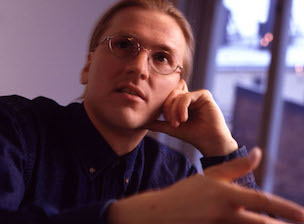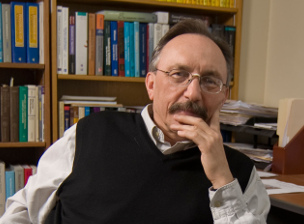The Helsinki Distinguished Lecture Series on Future Information Technology is organized by HIIT, a joint research institute between University of Helsinki and Aalto University. The series was launched in 2012.
The focus of the seminar series is to highlight the research challenges and solutions faced by current and future information technology, as seen by the internationally leading experts in the field.
The vision of the series is to be approachable for audience that has scientific education not limiting to information technology, whilst at the same time providing information technology experts new viewpoints to their own discipline.
Venues alternate between University of Helsinki and Aalto University, the two host universities of HIIT.
The events are open to all and free of charge. Registration to the event (for logistic purposes) is requested via electronic form (see below).
Lecture schedule
Next lecture
February 27, 2018

Nic Lane, University of Oxford, niclane.org
Machine Learning Systems: On-device AI and beyond
February 27, 2018 at 3.15-4.30 pm in the Small Hall, Main Building, University of Helsinki, Fabianinkatu 33, Helsinki
The lecture is free of charge and open to everyone interested in the latest research in information technology. The lecture will be followed by an informal cocktail event. Please register here.
Abstract
In just a few short years, breakthroughs from the field of deep learning have transformed how computational models perform a wide-variety of tasks such as recognizing a face, driving a car or the translation of a language. Unfortunately, deep models and algorithms typically exert severe demands on local device resources and this conventionally limits their adoption within mobile and embedded platforms. Because sensor perception and reasoning are so fundamental to this class of computation, I believe the evolution of devices like phones, wearables and things will be crippled until we reach a point where current – and future – deep learning innovations can be simply and efficiently integrated into these systems.
In this talk, I will describe our progress towards developing general-purpose support for deep learning on resource-constrained mobile and embedded devices. Primarily, this requires a radical reduction in the resources (viz. energy, memory and computation) consumed by these models – especially at inference time. I will highlight various, largely complementary, approaches we have invented to achieve this goal including: binary “on-the-fly” networks, sparse layer representations, dynamic forms of compression, and scheduling partitioned model architectures. Collectively, these techniques rethink how deep learning algorithms can execute not only to better cope with mobile and embedded device conditions; but also to increase the utilization of commodity processors (e.g., DSPs, GPUs, CPUs) – as well as emerging purpose-built deep learning accelerators.
About the speaker
Nic Lane is an Associate Professor in the Computer Science Department at the University of Oxford. Before joining Oxford, he held dual appointments at University College London (UCL) and Nokia Bell Labs; at Nokia, as a Principal Scientist, Nic founded and led DeepX – an embedded focused deep learning unit at the Cambridge location. Nic specializes in the study of efficient machine learning under computational constraints, and over the last three years has pioneered a range of embedded and mobile forms of deep learning. This work formed the basis for his 2017 Google Faculty Award in machine learning. Nic’s work has received multiple best paper awards, including ACM/IEEE IPSN 2017 and two from ACM UbiComp (2012 and 2015). This year he will serve as the PC Chair of ACM SenSys 2018. Prior to moving to England, Nic spent four years at Microsoft Research based in Beijing as a Lead Researcher. He received his PhD from Dartmouth College in 2011. More information about Nic is available from http://niclane.org.
Past lectures

Randy H. Katz University of California, Berkeley
Building-Energy-Transportation Systems (BETS) and the Coming Industrial Disruptions
- at 1.00pm
- in Great Hall, Main Building, University of Helsinki, Unioninkatu 34, Helsinki
- The lecture is a part of the 50th Anniversary Jubilee Seminar of the Department of Computer Science.

Rosalind Picard MIT Media Lab
Adventures in building Emotional Intelligence Technologies- at 3.15pm
- in Small Hall, Main Building, University of Helsinki, Fabianinkatu 33, Helsinki
Andrew Hopper University of Cambridge
Computing for the Future of the Planet- at 4.15pm
- in Linus Torvalds Auditorium B123, University of Helsinki, Gustaf Hällströmin katu 2b, Helsinki
Mikko Hyppönen F-Secure
The Cyber Arms Race- at 4.15pm
- in Auditorium T1, Aalto CS Building, Konemiehentie 2, Espoo
Wojciech Szpankowski Purdue University
Emerging Frontiers of Science of Information- at 4.15pm
- in Lars Ahlfors Auditorium A111, University of Helsinki, Gustaf Hällströmin katu 2b, Helsinki
Roderick Murray-Smith University of Glasgow
The Focused-Casual continuum in interaction design- at 4.15pm
- Auditorium T1, Aalto CS Building, Konemiehentie 2, Espoo
Corinna Cortes Head of Google Research, New York
Searching for Similar Items in Diverse Universes- at 4pm
- in Lars Ahlfors Auditorium A111, University of Helsinki, Gustaf Hällströmin katu 2b, Helsinki
Klaus-Robert Müller Techniche Universität Berlin
Toward Brain Computer Interfaces- at 4pm
- Auditorium T1, Aalto CS Building, Konemiehentie 2, Espoo
Henry Tirri Executive Vice President, CTO, Nokia
Indexing the Real World: Spatial Data, Sensing and Cloud Computing- at 4pm
- in Open Innovation House, Otaniementie 19-21, Espoo
Christos Papadimitriou University of California, Berkeley
Evolution and Computation- at 4pm
- in Lars Ahlfors Auditorium A111, University of Helsinki, Gustaf Hällströmin katu 2b, Helsinki
Leslie G. Valiant Harvard University
Biological Evolution as Computational Learning- at 4pm
- in Auditorium T1, Aalto CS Building, Konemiehentie 2, Espoo
Eric W. Brown IBM Research
Watson: The Jeopardy! Challenge and Beyond- at 4pm
- in Lars Ahlfors Auditorium A111, University of Helsinki, Gustaf Hällströmin katu 2b, Helsinki
Tuomas Sandholm Carnegie Mellon University
Modern Dynamic Kidney Exchanges- at 3pm
- in Open Innovation House, Otaniementie 19-21, Espoo
Seminar hosts
| Academic year(s) | Seminar host |
| 2017- | Prof Giulio Jacucci, Department of Computer Science, University of Helsinki |
| 2013-2017 | Prof Teemu Roos, Department of Computer Science, University of Helsinki |
| 2012-2013 | Prof Juho Rousu, Department of Information and Computer Science, Aalto University |
Last updated on 8 Feb 2018 by Patrik Floréen - Page created on 5 Oct 2012 by Ella Bingham










